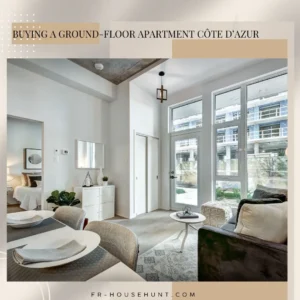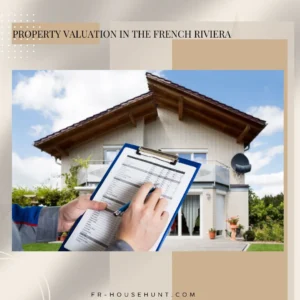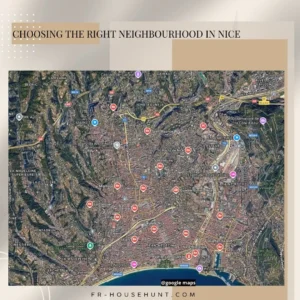
Tips Before Buying an Apartment with Outdoor Space
Buying an apartment with outdoor space is a dream for many—especially in places blessed with plenty of sunshine, like the Côte d’Azur. A private garden, a sunny terrace, or even a cozy balcony can change the whole feel of a property. It’s no longer just a place to live—it becomes a lifestyle.
But outdoor space comes with its own set of questions, legal points, and valuation issues that many buyers overlook. Whether you’re an expat relocating to the French Riviera or simply dreaming of a sunny pied-à-terre, here are key tips you should keep in mind before making that investment.
1. Make Sure Your Outdoor Space Is Legally Yours
The first and most crucial step is to verify the legal status of the outdoor space.
Just because an apartment has access to a terrace or garden doesn’t automatically mean it’s privately owned. It might be a common area, a “jouissance privative” (exclusive use, but not ownership), or part of the co-ownership regulations (règlement de copropriété). In France, these distinctions matter.
What to do:
- Ask your notaire (notary) or agent for the official title deed (titre de propriété) and condominium rules.
- Check if the outdoor space is part of your private lot or simply a right of exclusive use.
- Beware of ambiguous terms like “exclusive enjoyment”—they might not guarantee full ownership.
Understanding this upfront avoids major disappointments later. You don’t want to discover post-purchase that you’re not allowed to install a pergola or a jacuzzi on your “private” terrace.
Do you want to know more on preparing your purcase projet carefully?
2. Correctly Assess the Price of Your Outdoor Space
Not all outdoor spaces are created equal—and they shouldn’t be priced the same.
In real estate, outdoor space is rarely valued at the same price per square meter as the interior. Typically:
- A terrace may be worth 25% to 50% of the interior price per m².
- A balcony is usually 10% to 30%, depending on size and usability.
- A garden can vary dramatically depending on orientation, access, and maintenance needs.
- A courtyard (especially if shared) might add charm but not much monetary value.
For example, in Nice, if the indoor space is valued at €6,000/m², a large south-facing terrace might be valued at €3,000/m². But a small, north-facing balcony might barely add any value at all.
What to consider:
- Sun exposure and view (sea view? Mountain view? Or… a wall?)
- Size and shape (a 15m² usable square terrace is more valuable than a narrow 20m² L-shaped one)
- Privacy and noise levels (does it face a busy street or a quiet courtyard?)
- Maintenance and upkeep (especially for gardens)
Always ask your real estate agent for a breakdown of how the outdoor space has been valued—and don’t hesitate to negotiate if it seems overestimated.
Feeling overwhelmed? No panic!
FRH is here to help you to buy the right property with outdoor space
3. Garden, Terrace, Balcony, Courtyard: Know the Differences
It’s easy to lump everything together as “outdoor space,” but understanding the differences helps you make the right purchase decision.
Garden
- Usually found in ground-floor apartments.
- May be private or shared.
- Requires regular maintenance.
- Great for families or pet owners.
- Watch for issues like soil drainage, pests, or tree roots near the building structure.
Terrace
- Flat, open space, often on the roof or higher floors.
- Highly prized in urban settings.
- Offers potential for an outdoor kitchen, dining area, or sunbathing.
- Check if there are weight limits or restrictions on use.
Balcony
- Typically smaller and narrower.
- Great for placing a bistro table or a few plants.
- Can add charm but may not dramatically change your lifestyle.
- Consider wind exposure and noise levels from nearby streets.
Courtyard
- Usually internal and shared between several units.
- Offers charm and character.
- Less practical for private gatherings.
- May be subject to shared rules (no BBQs, for example).
Knowing the type of outdoor space you’re buying will help you match it to your needs—and set realistic expectations.
4. Inspect the Safety Measures of Your Outdoor Space
An outdoor space is only enjoyable if it’s safe.
Before buying, make sure the area complies with local building codes and safety regulations—especially if it’s elevated (terrace or balcony).
Check for:
- Sturdy guardrails or balustrades (minimum legal height in France is typically 1m).
- Slip-resistant flooring, especially near water or in shaded areas.
- Structural integrity: Is the terrace or balcony in good condition? Look for signs of rust, cracks, or leaks.
- Lighting: Is the space safely lit for evening use?
If it’s a large terrace or rooftop, ask if there’s emergency access, and whether fire regulations apply.
Safety is not just a checkbox—it’s about peace of mind.
5. Check the Water and Electricity Installations in Your Outdoor Space
You might want to install an outdoor kitchen, lighting, or an irrigation system—but is the space already equipped?
Ideally, your outdoor space should have:
- A water tap (robinet) for gardening or cleaning.
- Electrical outlets with weather protection.
- Drainage systems that work well (especially on balconies or terraces).
If not, consider the cost and feasibility of adding these. In some apartments—especially in historic buildings or tight co-ownerships—upgrading these connections might require building-wide permissions.
Always get a quote or inspection from a professional before assuming you can « just add a plug. »
6. Examine Your Rights to Use Your Outdoor Space
Even if you legally own or have exclusive use of the space, there may be restrictions on how you use it.
Check the co-ownership regulations (règlement de copropriété) and building rules for things like:
- Are barbecues allowed?
- Can you install a pergola, awning, or planter boxes?
- Is gardening permitted (and what types of plants)?
- Are pets allowed to roam free?
- Can you host social gatherings?
Some buildings in France have strict regulations to preserve uniformity or prevent noise complaints.
Also, ask if the building is protected (immeuble classé) or in a historic area. This can limit modifications to façades or outdoor installations.
Understanding your rights prevents conflict with neighbors—and disappointment later on.
Conclusion: 5 Important Questions to Ask Yourself Before Buying an Apartment with Outdoor Space
Before you sign anything, take a moment to reflect. Here are five smart questions every buyer should ask:
- Do I own this outdoor space, or do I only have the right to use it?
- Is the outdoor space practical and enjoyable in real life—not just on paper?
- Is it priced fairly based on size, exposure, and functionality?
- Does the space meet my lifestyle needs—relaxation, hosting, gardening?
- Am I free to customize or use the space the way I want to?
An outdoor space can add incredible value to your lifestyle and property—if you choose the right one. But don’t let the dream blind you to practical concerns. Do your homework, ask the right questions, and work with professionals who know how to navigate the fine print.
In sunny regions like the French Riviera, a great outdoor space isn’t just a bonus—it’s a way of life. Choose wisely, and you’ll never regret it.
Do you want to find (and to buy) a property in the french riviera with outdoor space?
Let’s talk. We help foreign buyers find their dream home in the French Riviera in no time.
Contact us




